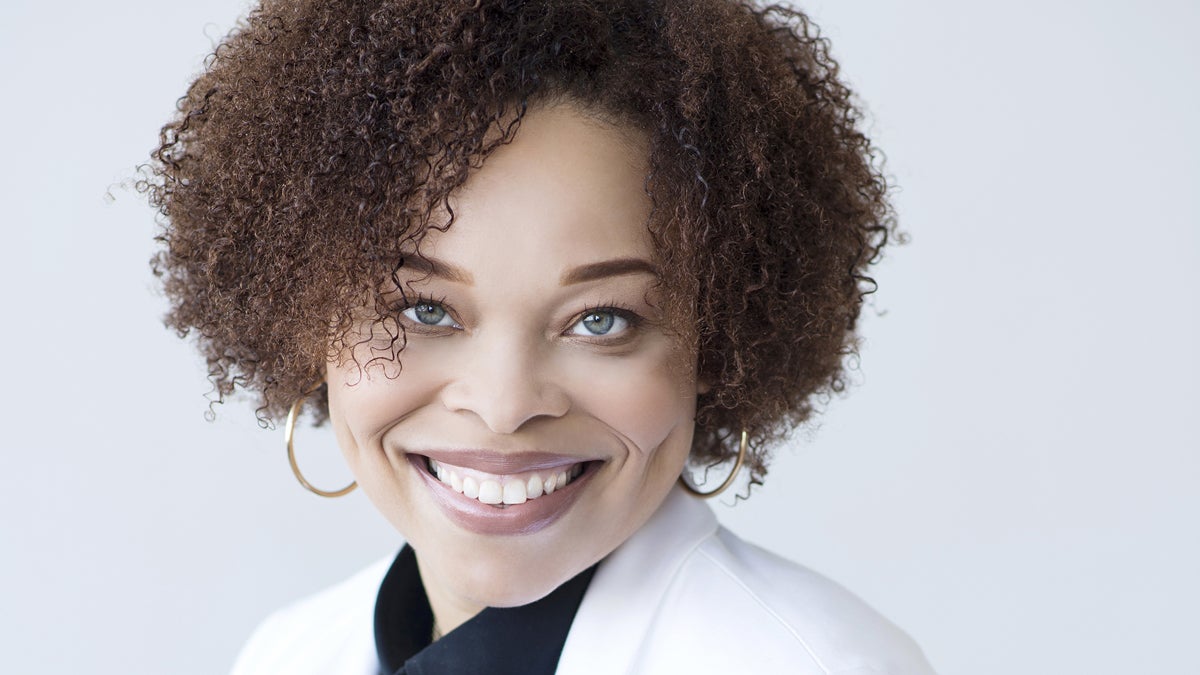Net neutrality and equal access, a civil rights issue for Brigitte Daniel

Brigitte Daniel is a Philadelphia lawyer and executive vice president of Wilco Electronic Systems, which focuses on providing cable and internet to low-income communities. (Image courtesy of Brigitte Daniel)
I first met Brigitte Daniel while sitting in the Philly airport last summer, waiting for a flight, flipping through Marie Claire. In the @Work section, on trailblazing women in the workplace, I was captivated by the morning skin-care regimen of one woman in particular. (I do have my priorities.) After approvingly noting her choice of moisturizing face oil, I noticed that the image staring back was that of a Philadelphia lawyer, Brigitte Daniel, whose cable company focused on underserved communities in the City of Brotherly Love.
Then I really got into it.
Family, meaning and social vision
When you talk to Daniel about what it’s like to bring her whole self to work, her vision and acumen — in other words, both the view of what can be better in the world and the smarts to get it done — can blow your hair back.
The executive vice president of Wilco Electronic Systems, which focuses on providing cable and internet to low-income communities and is one of the last African-American-owned cable/internet providers in the country, Daniel is the 37-year-old daughter of its founder, Will Daniel — who, she says, laughing, still works right down the hall from her office, “for better or for worse.”
That combination of family, personal meaning, and social vision are so integrated in Daniel that it’s hard to separate them out. She had grown up with that community vision and business action as part of the air she breathed. In a way, she never knew anything else — “whether it was seeing my father come home after long nights,” she says, “or seeing my mother be the breadwinner in the early stages, or even reading HBO booklets at the young age of 6.”
But Daniel didn’t always assume she’d go into the family business.
“It wasn’t till I got to law school at Georgetown that I realized how important it was to have a company in an industry that determines how people communicate,” she says, “and is also legacy-building for your family and for community.”
When she interned at the FCC and started taking communication law classes, she says, “the light bulb flipped. I realized: ‘This is it. I’m exactly where I want to be, and I lived in a family that’s part of this very subject.’
“In the African-American community, it’s hard for new and family businesses to survive. Yet it’s where so many new initiatives start,” she says. “It’s harder to see them grow and be passed down.”
Bridging the digital divide, a civil rights issue
When I asked Daniel more about what that process had been like at Wilco under her tenure, she speaks insightfully about the changing nature of cable and Internet and the importance of net neutrality to allow people of all income levels to maintain access.
“When I first got to Wilco in 2006, I realized the cable industry had completely changed,” she explains. “Cable had undergone a technical revolution, and I realized our family business had to grow or go. I was faced with the challenges of transitioning Wilco from being a cable company to being a tech company.
“I started steering our company in that direction. Our market is made up of people who are negatively affected by the digital divide, so we’re about empowering and educating our customers. It’s where I see my legacy coming into Wilco.”
The technology has changed, but the mission has remained the same. Daniel describes it as a social mission for two reasons: because of the overlooked populations that Wilco serves but also because, in addition to serving them, the company seeks to identify and understand the needs of that marketplace.
“We see ourselves as the link between those who have and those who don’t,” Daniel says. “I’m a woman, of color, and a lawyer, so I’ve been able to tweak Wilco to reflect my own experiences and make it my own.
“The Internet is a key economic and civil rights issue for the 21st century. If people don’t have access to information, they’re lacking the ability to compete, get jobs, learn. All of it’s dramatically impacted if that digital divide isn’t bridged.”
Supporting young women of color
But her impact doesn’t stop there. Daniel has begun systematically to reach into those underserved community in a holistic way, starting initiatives such as “Mogulette: Moguls In The Making,” which is geared toward supportive young women of color who are interested in tech careers and who want to start their own businesses.
“Tech is the driver of our economy,” Daniel says, “but there are so many disparities in who is creating it and who is driving it. When there’s as many people of color buying the products as there are, then we need to be part of providing them, too.”
So exactly how does she handle all that work on a human level?
“I want to balance that superwoman act with things like starting and having my tech-savvy family,” Daniel says, laughing. “I have no aims of not having these things. I want to make sure my life is balanced, and I’m able to have a family where they can see what I’ve done, and understand and value, literally, the blood, sweat, tears, of building a family and a business that creates black family legacy.
“What fuels me every day is the passion I have to be this kind of connector of people and families and communities, despite some of the challenges of proving our own market. I wake up every day thankful to have this platform to spring into others.”
WHYY is your source for fact-based, in-depth journalism and information. As a nonprofit organization, we rely on financial support from readers like you. Please give today.




